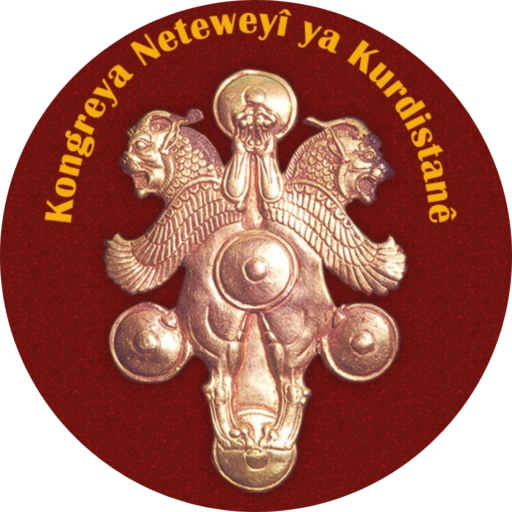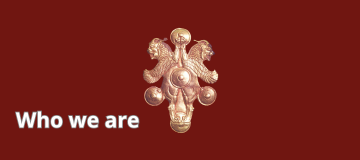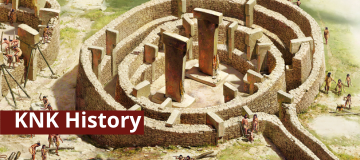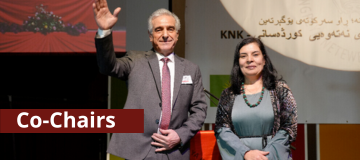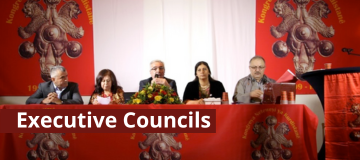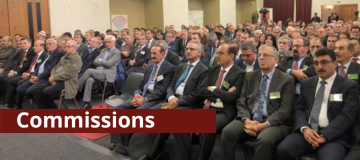The KNK Preparatory Committee, after four years of work, finally took the decision to officially found the KNK, at a moment when the Kurdistan national cohesion was higher than ever. The KNK was thus founded in Amsterdam on May 24, 1999. This step was taken consecutive to an international conspiracy against the PKK and its leader Abdullah Öcalan, who was abducted in February 1999 as the head of an alleged “terrorist organization” and illegally handed over to Turkey. The Kurdish national question had thus been unjustly reduced to a criminal affair. This event provoked large and angry demonstrations in the four parts of Kurdistan and the Kurdish diaspora across the world thus proving to the international community that the Kurds are a nation in the making.
The creation of the Kurdistan National Congress had been an urgent need for decades. The foundation represented a major political event in the contemporary history of the Kurds, the world’s largest stateless nation, and has since had major political implications in the Middle East. An earlier institution, the Kurdistan Parliament in Exile, had achieved its objectives. Consequently, there was now the need for a much larger Kurdish representation within a Congress. The Kurdistan Parliament in Exile dissolved on September 26, 1999. As a result of the consequent foundation of the KNK, for the first time in their history, the Kurdish people in the four parts of divided Kurdistan, the Kurdish diaspora (Russia, former UDSSR, Europe, North America, Australia and Arab world), the different religious groups among the Kurds (Sunni, Alevi and Shii Muslims, Ezidis, Ahle-Haq, Christians), the different dialect groups among the Kurdish people (North- and South Kurmanci, Zazaki, Gorani, Hawrami, Faili), as well as the Assyro-Chaldean people native to Kurdistan, have since been represented in one nationwide organization.
